Digitalisation: EBC on Digital Building Logbooks in European Commission video series
March 24, 2025
The European Commission has released the fourth episode of its High-Level Construction Forum (HLCF) video series exploring the benefits and challenges of Digital Building Logbooks (DBLs).
DBLs are designed to centralise and streamline access to building-related data, potentially supporting both construction companies and property owners in the green and digital transition.
In this episode, our Secretary General Fernando Sigchos Jiménez shares the views of construction SMEs and craft trades on the opportunities and obstacles linked to the implementation of DBLs, next to Emmanuelle Causse from the International Union of Property Owners UIPI and Domenico Campogrande from the European Construction Industry Federation FIEC.
The Benefits of Digital Building Logbooks
DBLs could serve as a common repository for all relevant building data, allowing structured access to information such as energy performance certificates, renovation passports, and smart readiness indicators. As highlighted in the discussion, DBLs could provide a centralised source of information, making it easier for owners, construction companies, and authorities to manage buildings efficiently; enhance decision-making in construction and renovation projects by offering a clear overview of materials, past renovations, and legal requirements; and contribute to EU policy goals, including energy efficiency, sustainability, and circularity in the built environment.
Despite their potential, implementing DBLs comes with significant challenges. The experts identified key concerns. First, data privacy and security; owners worry about who can access their data and how it might be used, requiring clear regulations on ownership and access rights. Then, the existing fragmentation and lack of interoperability, with many existing systems that do not communicate effectively, making data collection and sharing cumbersome, particularly for SMEs. Finally, the digital skills gap in the sector, with small companies often lack the expertise and investment capacity to work with digital systems.
Additionally, Mr. Sigchos Jiménez pointed out that data collection and reporting are not the core business of small construction firms, making digital adaptation a challenge.
Overcoming Barriers to Implementation
For DBLs to be successful, the experts agreed on the need for user-friendly solutions, greater digital literacy support, and clear regulatory frameworks. Some key recommendations included:
- Developing voluntary and free-to-use DBLs, reducing red tape and increasing adoption among SMEs and owners.
- Ensuring interoperability through standardised data formats and open platforms.
- Providing targeted training and support, particularly for SMEs that struggle with digital adoption.
EBC is dedicated to supporting the digital transformation of the construction sector and the digital transition of micro and small companies. EBC will continue monitoring and shaping the evolution of DBLs so that these tools facilitate the green and digital transitions of small construction companies.
EBC call for
Partnerships
